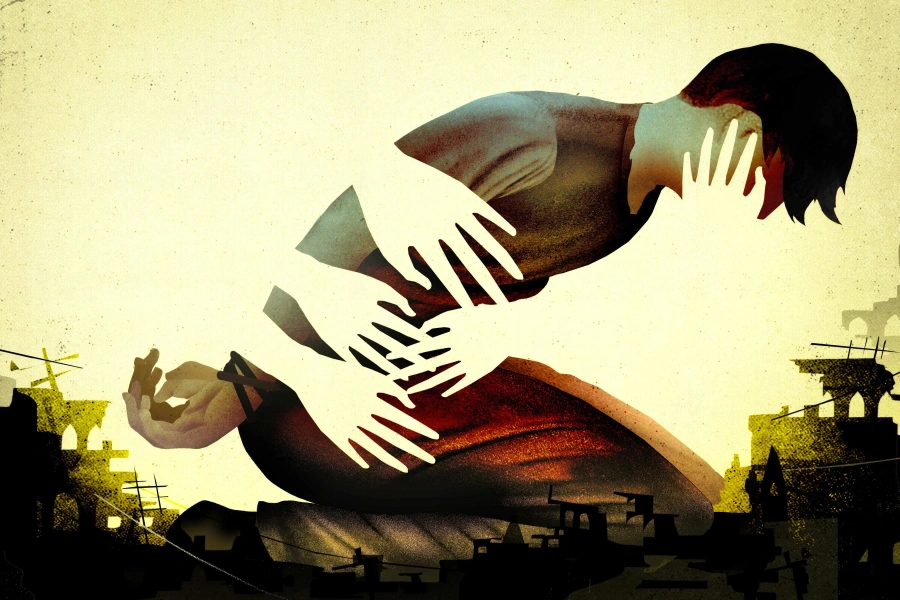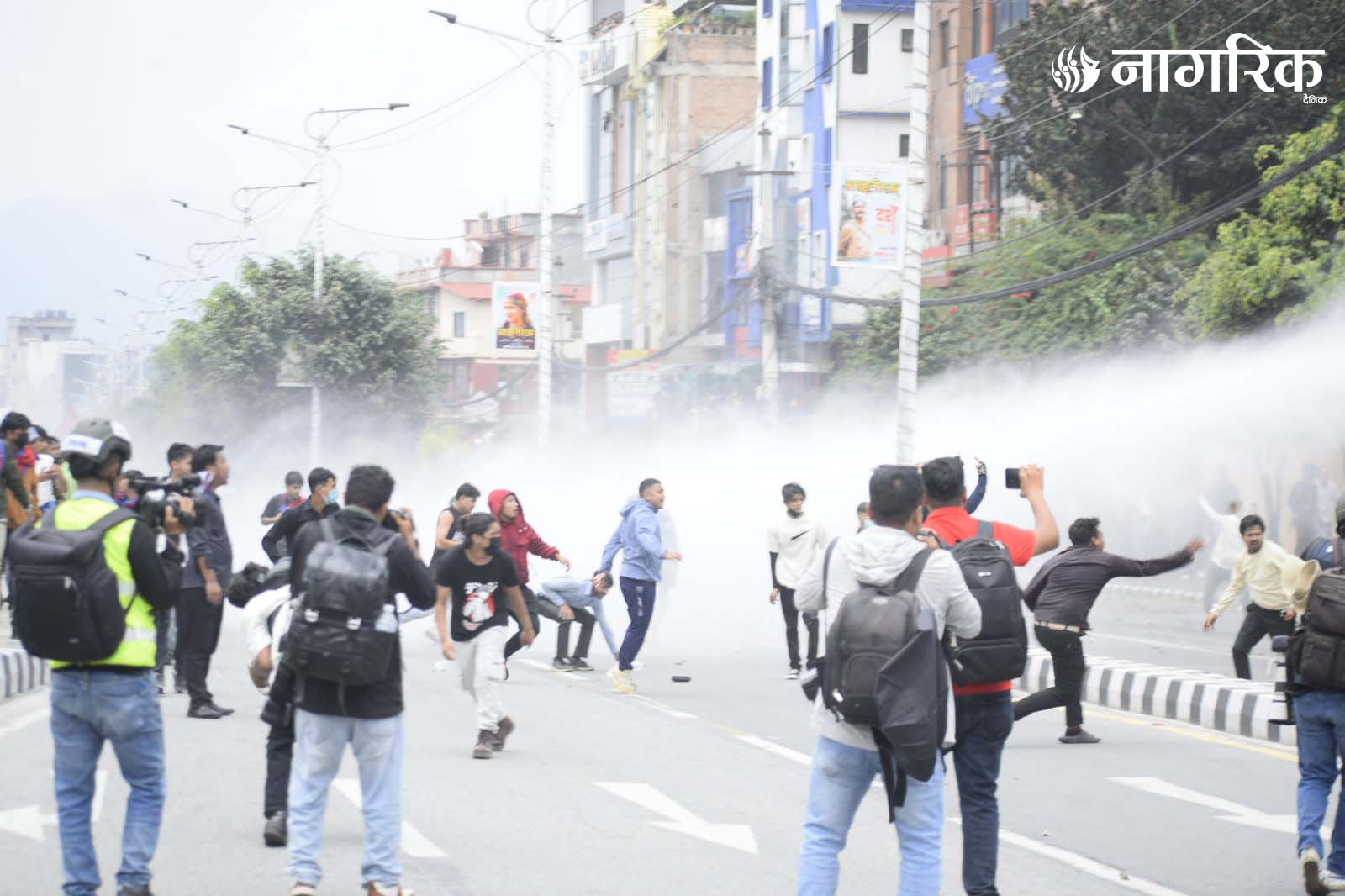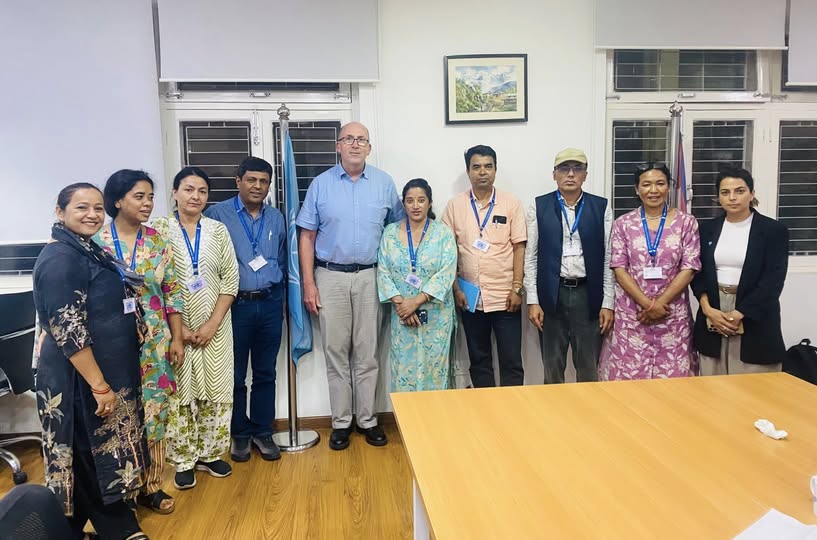The efficient way of polling procedures as Germany adopts can also be replicated in Nepal.
The economic disruptions, partly due to COVID 19 pandemic and Russia Ukraine war, has played a significant role in fueling citizen dissatisfaction towards existing democracies. A survey conducted by Pew Research Center, a nonpartisan Washington DC based think tank, in 2024, confirms this notion as a median of 59% of respondents across 24 countries expressed dissatisfaction with the way democracy is working in their countries.
After the governing coalition collapsed in December 2024 in Germany, the federal elections got preponed and Germany voted for its 21st Bundestag (Parliament) on February 23. As predicted, the center-right Christian Democratic Union (CDU) and Christian Socialist Union (CSU) led by Friedrich Merz secured victory with 29% of total direct votes. After prolonged and multiple power sharing talks with the third ranking Social democratic party (SPD), Merz is going to succeed the outgoing Chancellor Olaf Scholz of the SPD on May 6.
Despite the CDU's narrow victory, the attention has shifted to the remarkable performance of the right-wing, ultra-nationalist, and populist party, Alternative for Germany (AfD). The AfD almost doubled its vote share compared to the 2021 elections and secured second place with 21% of the vote. The AfD was founded in 2013 by a group of economists and academicians as a forum to oppose the European Union’s financial policies. However, the forum quickly shifted its focus to immigration and criticized the lenient migration policies of Chancellor Angela Merkel's administration. In the 2013 election, the AfD narrowly missed the 5% threshold required to enter the Bundestag. However, Merkel’s open-door refugee policy that allowed over a million refugees into Germany on humanitarian grounds, fueled a surge in support for the AfD. The newly formed party capitalized on anti-immigration sentiment of a section of the German population and secured 12.6% votes in the 2017 federal election, becoming the third-largest party in Parliament. This marked the first time since World War II that a far-right party had entered the Bundestag.
Since then, the AfD’s popularity has grown exponentially, particularly in former east German states, where economic grievances and dissatisfaction with mainstream parties have strengthened its support. Hence, the AfD performed exceptionally well in the recent election by securing first position in all four former east German states. AfD’s vote share in all these states was high 30%. In the rest twelve states of the former west Germany, either the CDU/CSU or the SPD secured the largest share of votes. These results show a clear political rift in Germany - the former east German states favoring ultra nationalist and populist AfD and the West German states voting for the conservative parties.
Nepal and Germany sign JDoI on skilled labor migration

Now, the policies and performance of the coalition government under Chancellor Friedrich Merz will shape Germany's political trajectory in the coming years. Merz faces the formidable challenge of reuniting a politically divided nation. Should his administration fall short over the next four years, it could pave the way for the extremist AfD to gain significant ground - and possibly enter government - following the 2029 federal elections.
As the migration issue is a topic of debate in Germany, especially the inflow of innumerable asylum seekers resulting in sporadic terrorist attacks and criminal activities, the Merz administration is expected to implement asylum reform plans that could have significant implications for asylum seekers, particularly in terms of labor migration, student visas, and asylum applications. Since May 2024, five terrorist/criminal activities have already been executed in Germany that has claimed 14 lives and injured more than 350. Asylum seekers from Islamist countries (Afghanistan, Syria and Saudi-Arabia) that entered Germany through lenient German migration policy were involved in all these activities.
The economic disruptions, partly due to COVID 19 pandemic and Russia Ukraine war, has played a significant role in fueling citizen dissatisfaction towards existing democracies. A survey conducted by Pew Research Center, a nonpartisan Washington DC based think tank, in 2024, confirms this notion as a median of 59% of respondents across 24 countries expressed dissatisfaction with the way democracy is working in their countries. In 2024, the elections in 70 countries established a trend of rejecting incumbent governments, with voters expressing disenchantment by endorsing outsiders, sometimes with far-right populist ideologies. The emergence of new and populist political forces including a score of independent candidates in the last election in Nepal also aligns with this global trend. Moreover, with citizens from the former east German states challenging the traditional political structures by supporting the far-right AfD, Germany also seems to be steadily moving in this populist direction. This has prompted obvious debates about the country's democratic values and future direction.
A personal election experience
Having conducted and supervised election proceedings at a polling center in a constituency within a former east German city, I witnessed firsthand the strong support voters expressed for the AfD. In our constituency, the AfD secured nearly 20% of the vote that was consistent with the party’s performance at the national level.
In addition, I had the opportunity to experience the German election process firsthand, which differs significantly from the election system in Nepal. Unlike in Nepal, where government officials typically oversee the elections, Germany appoints impartial volunteers to serve as election officers. Elections are always held on Sundays to avoid disrupting the regular workweek.
The atmosphere at the polling station was orderly, with no incidents of unrest or security issues due to the fact that the voter base was responsible and there was no or minimal risk of electoral fraud. There was no political campaigning within the vicinity of polling stations, and no external observers visited our center during the process.
Once voting concluded, the election officers immediately began counting the ballots within the polling station itself. As soon as the count was completed, results were promptly relayed to the local election authority via a secure hotline. These results were then compiled and updated in real time by the central election office. As a result, the final outcome of the election could be announced by midnight on the election day.
The efficient way of polling procedures as Germany adopts can also be replicated in Nepal. For that, a public awareness should be initiated and the perception should be developed that the elections are not for personal power gaining but for the welfare of the society. The political leadership should also accept the fact that free and fair election is the backbone of a functioning democracy.
To summarize, the unprecedented rise of far-right, populist and ultra nationalist political forces in Germany, especially in the parts of former east Germany has demonstrated a clear political rift between the former east and west Germany. The new government has a daunting task of breaking this shackle and work towards politically reuniting the country. Despite these political developments, the free and fair election in Germany stands as a cornerstone of a functioning democracy in the nation. Such practices can also be adopted in Nepal to strengthen its electoral proceedings,thereby enhancing the credibility and public acceptance of elected candidates.







































